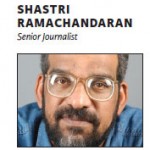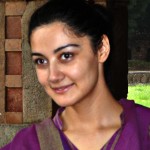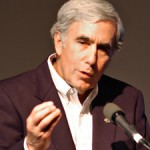Archive for February, 2014
TFF PressInfo: Ukraine – What Would You Like to Know About It?
By Jan Oberg
I’m no expert on Ukraine, haven’t even visited it. Like millions of other citizens, I rely on media reports to understand at least some of what looks like potentially very serious developments.
Why do I feel so frustrated at what I get? Why do I have so many questions still after weeks of coverage? And how much will fellow-citizens who have just a few minutes per day to acquaint themselves with issues such as this understand (except that Putin is a bad guy)?
It’s a conflict, isn’t it?
I would like to know what are the internal Ukrainian dimensions, the regional East-West European and EU/NATO aspects and what has all this to do with global developments e.g. U.S. foreign policy, NATO’s expansion since the end of the Cold War, strategic interests of Russia and Russia-NATO relations. And where is China and BRICS countries in all this?
Internally, I’d like to learn about the ethnic composition and geography, the role of Russians and – not the least the Jews – and the historic relations between Russia and Ukraine.
In a shorter perspective, when did the West begin to see Ukraine as an interesting country? Why did George Bush Sr. and James Baker promise Mikhail Gorbachev that the West would never expand up to Russia’s border – and anyhow NATO began being an issue in Ukraine in 1995.
It would be great to learn from media about how – as everywhere else – economic mismanagement and overall crisis caused both neo-Nazism, rampant anti-Semitism and general dissatisfaction? And why is it that anti-Semitism is covered so little anywhere in the Western press
How come that important background aspects like these so easily translate into simplifying anti- versus pro-Russian attitudes? Read the rest of this entry »
Ukraine’s umbilical cord to Russia
By Jonathan Power
February 25, 2014
Thank heavens for the Sochi Olympics. Russian president, Vladimir Putin, was committed to ensuring they showed Russia in its best light – and they did. Who would have wanted to take the world’s eyes off that to back a president in Ukraine who, to Putin’s annoyance, had made too many bad moves?
This must be a principle explanation for Putin’s public silence on the events in Ukraine.
Added to that, the fact is that Ukraine is not the Georgia of 2008 when Russia invaded, fearful that Georgia was planning to join Nato which, if it happened, would have been a major contribution to the military encirclement of Russia. Ukrainian public opinion, by and large, does not want their country to join Nato.
Ukrainians, both Ukrainian and Russian speaking, have an umbilical cord that ties them to Russia. There is the powerful influence of the Orthodox Church which is the inheritor of the Church of Constantinople which in turn is the true descendent of the original Rome-based Church. The headquarters of the Church was moved to Constantinople by the Roman emperor, Constantine, the first emperor to embrace Christianity. This is the reason Moscow is often referred to as the “Third Rome”. The path to Moscow led through Kiev and this is why the Orthodox in both these religious nations are likely to be intertwined as far as anyone can see ahead.
Besides that, right through the communist era, Moscow was the Mecca for every scientist wanting to do advanced research, for every aspiring ballet dancer, opera singer, writer, academic, surgeon, engineer and a host of politicians, including Soviet premier, Nikita Khrushchev. The Ukrainian Crimea has long been the main base for Russia’s navy. Read the rest of this entry »
Criminalizing aggressive war
By Johan Galtung
Kuala Lumpur, February 24, 2014
Few, if anybody, today argue this so forcefully as Mahathir Mohammad, Malaysia’s fourth prime minister, for 22 years. He compares what we do when one person kills another to all we do not do when millions kill millions in aggressive wars. We have clear laws, we apprehend the suspect, weigh the evidence for or against in court, and, if found guilty, the murderer is punished. There may even be a system of compensation for the bereaved.
But in wars among states the murderers get medals and honors, and if victorious relish a post-glory exuberance disorder, nourishing a new aggression. And the bereaved are left with their grief and a post trauma stress disorder, nourishing the idea of revenge. Madness, irrationality, a social evil of top rank, to be abolished. As Mahathir says: “Peace for us simply means the absence of war. We must never be deflected from this simple objective”. An important reminder for all who broaden the concepts of violence and peace: remember the essence!
One approach is criminalization. For that clear laws are needed, meaning without loopholes. The UN Charter is an effort (Articles 1.1 and 2.4) prohibiting war and the threat of war among (member) states. Read the rest of this entry »
How to win the Indian election
By Jonathan Power
 The drum beats are already sounding for the soon-to-be-held general election in the world’s largest democracy, India- the country that shows China how it should be done.
The drum beats are already sounding for the soon-to-be-held general election in the world’s largest democracy, India- the country that shows China how it should be done.
There is a sense in the country that the ruling Congress Party and the influential Gandhi/Nehru core of it is on its way out after 10 years of a government that has hit the high points and the lows. To my mind, if the inexperienced Rahul Gandhi steps back from offering his own candidacy for prime minister and his mother, Sonia Gandhi, president of the party, pushes to the fore the very clever finance minister, Palaniappan Chidambaram, Congress is still in with a chance.
If not, the BNP candidate, Narendra Modi, looks like romping home, despite the cloud hanging over him as chief minister of the state of Gujarat at the time of Hindu-Moslem riots in 2002 when, it is said, he didn’t use his authority to halt the rampaging Hindus who slaughtered Muslims. The Supreme Court later absolved him and now the US has lifted its refusal to give him an American visa. Many say he now has a clear run. Read the rest of this entry »
IPRA – International Peace Research Association – at 50
By Johan Galtung
Known as IPRA, founded in 1964 in London–and this author, 34 at the time, is the only surviving founder. IPRA rotates every two years from one peace research center to the other, and is now in very competent Turkish hands. And what is more natural than having the 50th anniversary for the hub of peace studies in that hub of the world, Istanbul, 10-14 August this year!! Hurry up, register!!!
Today it is hard to believe, but to get IPRA started was as problematic as to launch peace studies in general.
The Western establishments did not like “peace”; their favorite was security, absence of violence against themselves in particular and their elites even more particularly. Security studies became academically institutionalized Western paranoia.
And the peace movement establishments did not like “studies”–what was there to study? Each one knew the one correct answer! Read the rest of this entry »
Failure of US leadership wrecking bilateral relationship
By Shastri Ramachandaran
With India-US ties hitting a nadir, Shastri Ramachandaran takes a look at what went wrong in big power diplomacy
The world’s two largest democracies may have much in common. But far from common interests prevailing over contentious issues, India-US relations are in for an uncommon spell of stresses and strains. These are unlikely to ease any time soon in an election year, regardless of Washington’s about-turn in cosying up to Narendra Modi.
Political changes in India cannot banish overnight the causes and conditions in the US responsible for the souring of what was, until recently, toasted as the “defining relationship” of the 21st century.
Devyani Khobragade’s arrest and strip-search drove India-US relationship to its lowest point in 15 years. Not since the 1998 nuclear test, when the US-led “international community” imposed sanctions, has the relationship between the two been so bad. Read the rest of this entry »
Q & A with TFF Associate Heela Najibullah
The daughter of Afghanistan’s last communist president reflects on politics and pluralism in the strife-riven state.
Heela Najibullah was only 10-years-old when her father became the president of Afghanistan. To Heela, Mohammad Najibullah was Aba, father, trying to create reconciliation among an Afghan nation divided between communists and Mujhaideen, religious warriors fighting the Soviet occupation.
Though Heela saw her father working towards an inclusive solution to the Afghan conflict, few in the general population could separate Najibullah the communist from Najibullah the president calling for reconciliation.
In the decades since, however, Najibullah’s image has undergone a transformation. Pictures of a man once tied to communism now hang in people’s cars, windows and shops.
In an interview Al Jazeera, Heela Najibullah talks about her father’s changing image 25 years after the Soviet withdrawal. Continue reading the interview here…
Terrorists with nuclear weapons?
By Jonathan Power
US aviation authorities banned the carrying of toothpaste on planes heading to the Sochi Winter Olympics for fear they might contain a deadly explosive. Apparently such is the creativity of the modern terrorist.
Other departments of the US government rather more seriously worry about the transfer of nuclear materials to a terrorist group fit for an improvised “dirty bomb” (where explosives are wrapped with radiological materials) capable of bringing panic to a city, although it would only destroy not more than a block. Some go further and fear a small nuclear bomb could be smuggled in. Read the rest of this entry »
Saddam, Osama, Gaddafi, Chavez – and Obama
By Johan Galtung
Contemporary reality, but what is real? Two of the above were killed under Obama’s watch; Osama executed by Obama extra-judicially, in cold blood, the other two by proxies (Chávez: we do not quite know). Two of them were dictators; Osama had no state, Chávez had, but won elections apparently not more rigged than Florida 2004, Ohio 2008.
What were the problems, how might they have been solved? Read the rest of this entry »
TFF PressInfo: Institute a course for all on what confront humanity in the 21st century
Open Letter to College and University Presidents Re: Global Security 101
By David Krieger
You are in a unique position of leadership to influence today’s youth to achieve a better tomorrow for America and the world. I am writing to enlist your help in educating young people to understand the survival challenges that face humanity in the 21st century.
Education is driven by values. Young people must learn to live with reverence for life, as did Albert Schweitzer, and to support equitable and nonviolent solutions to social problems, as did Gandhi and Martin Luther King, Jr. Young people must be imbued with compassion, commitment and courage. They must learn to use their imaginations to find creative and cooperative solutions to the great issues of our time. And they must find joy in the process and take time to celebrate the miracle of living on the only planet we know of in the universe that supports life. Continue here…




